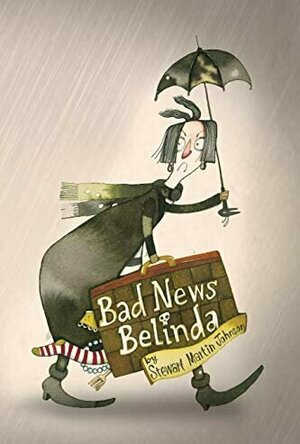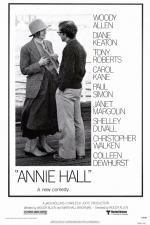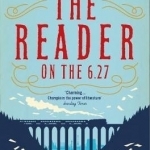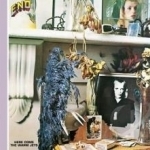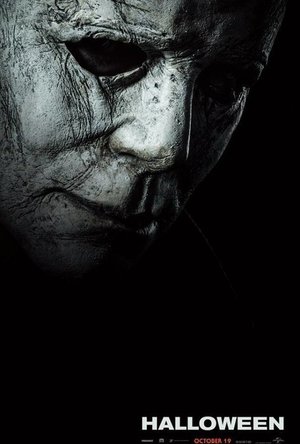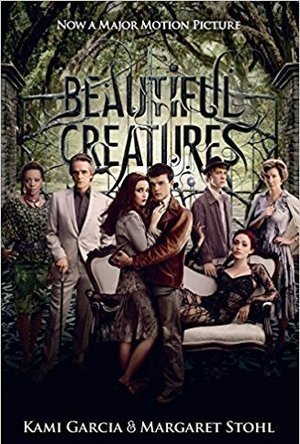Search
Search results
Night Reader Reviews (683 KP) rated Bad News Belinda in Books
Jan 9, 2020
Bad News Belinda by Stewart Martin Johnson is an amazingly cute little childrens book of only about thirty pages or so. Each page only has an average of about one sentence which makes it a very easy read. For some reason, it brought back memories of Amelia Bedelia from my childhood, but that may just be because of the name.
Aunt Belinda coming to stay for a visit is one of those visits that we all come to dread. In some way, most people can probably relate to having a relative that they are less than enthusiastic to see but hopefully they are not as bad as Belinda. When Belinda is around the children have to hide their candy and clean while Belinda either sits around or makes a mess of things.
Belinda doesn't do fun things with the children like the other aunts do, instead, she makes things miserable for them. The other Aunts help the children plan to get rid of Belinda, but Belinda overhears them. After everyone tells Belinda what they really think of her she leaves on her own and the children have a party with the good aunts.
What I liked best was how the artwork and the story worked very well together. For childrens books, I feel it is very important that the artwork and the story work together. This book is a wonderful example of that. When Belinda is around the coloring is darker, messy, and has a negative feeling, but it is bright, happy, and cheerful when she is gone. If I had to choose something that I didnt like it would be how everyone told Belinda they did not like her. However, seeing as how Belinda being a problem was kind of the whole point of the book it's not really a negative.
The target readers for this book are any children who like to be read to and young beginning readers. As an adult I also found this book to be fun and enjoyed reading it to my children. That being said I rate this book to be a perfect 4 out of 4. This is because everything about this book is great. The short sentences and overall length do not intimidate young readers. The artwork is spot on with the tones of the book. It has some funny and silly moments such as Belinda eating a goldfish and some very nice rhymes.
https://nightreaderreviews.blogspot.com/
https://www.austinmacauley.com/book/bad-news-belinda
Aunt Belinda coming to stay for a visit is one of those visits that we all come to dread. In some way, most people can probably relate to having a relative that they are less than enthusiastic to see but hopefully they are not as bad as Belinda. When Belinda is around the children have to hide their candy and clean while Belinda either sits around or makes a mess of things.
Belinda doesn't do fun things with the children like the other aunts do, instead, she makes things miserable for them. The other Aunts help the children plan to get rid of Belinda, but Belinda overhears them. After everyone tells Belinda what they really think of her she leaves on her own and the children have a party with the good aunts.
What I liked best was how the artwork and the story worked very well together. For childrens books, I feel it is very important that the artwork and the story work together. This book is a wonderful example of that. When Belinda is around the coloring is darker, messy, and has a negative feeling, but it is bright, happy, and cheerful when she is gone. If I had to choose something that I didnt like it would be how everyone told Belinda they did not like her. However, seeing as how Belinda being a problem was kind of the whole point of the book it's not really a negative.
The target readers for this book are any children who like to be read to and young beginning readers. As an adult I also found this book to be fun and enjoyed reading it to my children. That being said I rate this book to be a perfect 4 out of 4. This is because everything about this book is great. The short sentences and overall length do not intimidate young readers. The artwork is spot on with the tones of the book. It has some funny and silly moments such as Belinda eating a goldfish and some very nice rhymes.
https://nightreaderreviews.blogspot.com/
https://www.austinmacauley.com/book/bad-news-belinda
Simon Pegg recommended Annie Hall (1977) in Movies (curated)
Samantha Hemsley (2 KP) rated The Reader on the 6.27 in Books
Jun 30, 2019
Feel-good (4 more)
Simple easy-to read style
A celebration of the power of reading
Lovable characters
Brilliant translation from French
I'm so glad to have come across this little hidden gem.
The unfortunately named (apparently -- I think you have to be a French speaker to really understand the reasoning) Guylain Vignolles is 36, lives alone with his beloved goldfish and works in a job he detests -- operating a book-pulping machine in a publishing factory. Guylain alleviates his resultant mental anguish by rescuing the occasional surviving pages at the end of each shift and reading them aloud to his fellow commuters on the 6.27 train each morning much to their mingled bewilderment and joy. Featuring some wonderful larger-than-life characters such as the classical theatre loving security guard who only speaks in Verse and the reformed alcoholic engaged in a quest to be reunited with his missing limbs and the toilet attendant with a secret talent for writing, this book is quirky and a bit ridiculous in the very best way.
As a fellow book lover, I empathised with Guylain's heartbreak over destroying so many books day in and day out. I can't even bear to write in a book or fold the corner of a page never mind reduce them to a pulp! I absolutely loved the way he attempted to do the books justice by giving what pages he could save an audience. This book is a real testament to the power and pleasure of reading aloud which is something I'm hugely passionate about -- I even wrote one of my university dissertations about the benefits of reading aloud with children.
I also loved its message of how reading can unite people, despite it being seen as a generally quite solitary or even introverted activity. Through his reading, Guylain finds himself being invited to do regular readings at a care home, much to the delight of the residents and when he finds a USB stick on his usual train seat containing over 70 diary entries, the lonely Guylain might just find that it leads to true love.
As well as being very charming and quaint, the novel manages to avoid becoming trite with its very astute observations and brilliant humour -- often laugh-out-loud funny. The prose is simple but very skillful -- especially the verses concocted by Yvon the security guard. Huge credit must also be given to the translator here. (The book was originally written in French) To translate rhyme into a different language so that it still rhymes and still makes perfect sense in the context can't be an easy feat!
My only criticism is that the book is very short -- fewer than 200 pages. Apparently the author is usually a writer of short stories and this is his first novel. This definitely shows as the ending feels very abrupt and definitely as if it could have done with another 50 pages or so; perhaps even more. I wasn't ready to say goodbye yet! Having said that, the ending was very sweet and it was only its abruptness that prevented it from being 100% satisfactory. I wouldn't quite say that there are any loose ends but it would have been nice to find out a little more about some of the characters and their stories.
Overall though this was a really lovely feel-good read that will appeal to anyone who loves literature and zany but endearing characters. I read one review that said the plot was "outlandish" and the characters "unbelievable" but I believe this reviewer was missing the point. This book champions the escapist qualities of reading and to have a story and characters who perhaps just slightly transcend reality can only elevate the escapism just that bit more. Feasibility be damned, I loved Guylain and his supporting cast members and I think I could easily read this short but sweet little story again and again!
The unfortunately named (apparently -- I think you have to be a French speaker to really understand the reasoning) Guylain Vignolles is 36, lives alone with his beloved goldfish and works in a job he detests -- operating a book-pulping machine in a publishing factory. Guylain alleviates his resultant mental anguish by rescuing the occasional surviving pages at the end of each shift and reading them aloud to his fellow commuters on the 6.27 train each morning much to their mingled bewilderment and joy. Featuring some wonderful larger-than-life characters such as the classical theatre loving security guard who only speaks in Verse and the reformed alcoholic engaged in a quest to be reunited with his missing limbs and the toilet attendant with a secret talent for writing, this book is quirky and a bit ridiculous in the very best way.
As a fellow book lover, I empathised with Guylain's heartbreak over destroying so many books day in and day out. I can't even bear to write in a book or fold the corner of a page never mind reduce them to a pulp! I absolutely loved the way he attempted to do the books justice by giving what pages he could save an audience. This book is a real testament to the power and pleasure of reading aloud which is something I'm hugely passionate about -- I even wrote one of my university dissertations about the benefits of reading aloud with children.
I also loved its message of how reading can unite people, despite it being seen as a generally quite solitary or even introverted activity. Through his reading, Guylain finds himself being invited to do regular readings at a care home, much to the delight of the residents and when he finds a USB stick on his usual train seat containing over 70 diary entries, the lonely Guylain might just find that it leads to true love.
As well as being very charming and quaint, the novel manages to avoid becoming trite with its very astute observations and brilliant humour -- often laugh-out-loud funny. The prose is simple but very skillful -- especially the verses concocted by Yvon the security guard. Huge credit must also be given to the translator here. (The book was originally written in French) To translate rhyme into a different language so that it still rhymes and still makes perfect sense in the context can't be an easy feat!
My only criticism is that the book is very short -- fewer than 200 pages. Apparently the author is usually a writer of short stories and this is his first novel. This definitely shows as the ending feels very abrupt and definitely as if it could have done with another 50 pages or so; perhaps even more. I wasn't ready to say goodbye yet! Having said that, the ending was very sweet and it was only its abruptness that prevented it from being 100% satisfactory. I wouldn't quite say that there are any loose ends but it would have been nice to find out a little more about some of the characters and their stories.
Overall though this was a really lovely feel-good read that will appeal to anyone who loves literature and zany but endearing characters. I read one review that said the plot was "outlandish" and the characters "unbelievable" but I believe this reviewer was missing the point. This book champions the escapist qualities of reading and to have a story and characters who perhaps just slightly transcend reality can only elevate the escapism just that bit more. Feasibility be damned, I loved Guylain and his supporting cast members and I think I could easily read this short but sweet little story again and again!
Alex Kapranos recommended Here Come the Warm Jets by Brian Eno in Music (curated)
Movie Metropolis (309 KP) rated Halloween (2018) in Movies
Jun 10, 2019
A True successor to the original
Halloween 1978 and little-known director John Carpenter terrifies thousands of impressionable horror fans with the introduction of ‘The Shape’. Jamie Lee Curtis becomes the new ‘scream queen’ and all is well in the world of the slasher genre.
Fast-forward to 2009 and Rob Zombie directs the sequel to his reasonably successful remake of Halloween, but it was poorly received by critics and audiences alike. Why? Well Zombie’s grungy, rock-anthem vibe didn’t really sit too well with Michael Myers and the result was a distasteful and messy outing that set the franchise back nearly 10 years.
Of course, in between 1978 and 2009, the series was ripped apart, put back together again until it was a shadow of its former self. Anyone remember Busta Rhymes doing a vague impression of a karate master in Halloween: Resurrection? Best forget about that.
Nevertheless, director David Gordon Green, a lifetime fan of Carpenter’s iconic original is in the chair to helm a direct sequel to the 1978 classic. That’s right, it forgoes every single film apart from the first. But is it a worthy sequel to one of the greatest horror films of all time?
It’s been 40 years since Laurie Strode survived a vicious attack from crazed killer Michael Myers on Halloween night. Locked up in an institution, Myers manages to escape when his bus transfer goes horribly wrong. Laurie now faces a terrifying showdown when the masked madman returns to Haddonfield. But this time, she’s ready for him.
Having Jamie Lee Curtis and John Carpenter back for this instalment is already a coup for Gordon Green. Clearly, they thought enough of the material that he and co-writer Danny McBride had produced to give one more shot at crafting a properly deserved sequel. And it works very well, so well in fact that we have, barring the original, the best Halloween movie to date.
Jamie Lee Curtis is absolutely fabulous as a world-weary Laurie Strode. Traumatised by the events of 40 years ago, she holds herself up in a cabin on the outskirts of Haddonfield, flanked by floodlights and CCTV cameras. The script does a very good job at showing how massive events can destroy an individual’s life and Curtis’ understated performance is a highlight here.
Judy Greer gets a nicely fleshed out role as Karen, Laurie’s daughter. She’s an incredibly talented actress and it’s a world away from the one-dimensional characters she’s been given to play in blockbusters like Jurassic World. The great thing about this film is that each of the main characters feels real. There’s no cheap sex scenes, the kills are well-placed and the dialogue is superbly written – you actually believe these are real people, rather than characters in a movie.
While the body count is high, Halloween doesn’t rely on the murders to progress the story forward. This is very much Laurie’s film as opposed to Michael’s and it works very well. There’s some nice juxtaposition as shots that would have involved Michael in the original, choose to put Laurie front and centre here. Halloween features some tasteful references to the original as well as its less-well received sequels. They’re not immediately obvious for those not too familiar with the series, but die-hards will enjoy seeing those homages pop up every now and then.
Halloween is a resounding success. It takes what audiences loved about the original and updates them in a sequel that, while not being wholly original, respects what came before it
The film starts relatively slowly with a not quite successful side-plot involving two investigative journalists, but once Michael Myers gets his mask back, the film rarely lets up until the end. Populated by enough kills and scares to keep the audience happy, this is a Halloween movie that doesn’t rely too much on jump scares. There’s a few, but they’re nicely filmed which helps lift them above the mundane.
To look at, this is a film that is head and shoulders above anything else in the genre. Gordon Green uses incredibly fluid camera techniques that almost mimic those of the original. In one extended sequence, Myers moves in and out of shot as the camera follows him from house to house, selecting his next victim. With no cuts in between, it’s a stunning scene to watch and very effective.
Thankfully, the writing duo has decided to pass on giving Michael anything resembling a back story. The embodiment of ‘pure evil’ as Samuel Loomis once put it, Myers needn’t have any motives – and that’s what makes him so terrifying. In fact, his first kill here reaffirms his evil characteristics and it’s clear that David Gordon Green and Danny McBride were aiming for this take on the character.
Then there’s the score. John Carpenter has returned to craft new music for this instalment and it is by far the best score in the series, possibly even better than the original. That haunting Halloween theme tune is back, but upgraded with guitar riffs and electronic percussion. It’s a fabulous update that works perfectly with the modern characters and an older Michael.
While it’s true that the film isn’t out-and-out scary, the finale is exquisite as Laurie and Michael come face-to-face once again. Only the abrupt ending and forgetting of some key characters lets it down. After all, what’s the point in caring about a character and never learning of their fate?
Overall, Halloween is a resounding success. It takes what audiences loved about the original and updates them in a sequel that, while not being wholly original, respects what came before it. While this is sure to make bucket loads at the box-office, it feels like it was crafted with care by a writing team and director that absolutely adores the series. It’s a must watch.
https://moviemetropolis.net/2018/10/20/halloween-2018-review-a-true-successor-to-the-original/
Fast-forward to 2009 and Rob Zombie directs the sequel to his reasonably successful remake of Halloween, but it was poorly received by critics and audiences alike. Why? Well Zombie’s grungy, rock-anthem vibe didn’t really sit too well with Michael Myers and the result was a distasteful and messy outing that set the franchise back nearly 10 years.
Of course, in between 1978 and 2009, the series was ripped apart, put back together again until it was a shadow of its former self. Anyone remember Busta Rhymes doing a vague impression of a karate master in Halloween: Resurrection? Best forget about that.
Nevertheless, director David Gordon Green, a lifetime fan of Carpenter’s iconic original is in the chair to helm a direct sequel to the 1978 classic. That’s right, it forgoes every single film apart from the first. But is it a worthy sequel to one of the greatest horror films of all time?
It’s been 40 years since Laurie Strode survived a vicious attack from crazed killer Michael Myers on Halloween night. Locked up in an institution, Myers manages to escape when his bus transfer goes horribly wrong. Laurie now faces a terrifying showdown when the masked madman returns to Haddonfield. But this time, she’s ready for him.
Having Jamie Lee Curtis and John Carpenter back for this instalment is already a coup for Gordon Green. Clearly, they thought enough of the material that he and co-writer Danny McBride had produced to give one more shot at crafting a properly deserved sequel. And it works very well, so well in fact that we have, barring the original, the best Halloween movie to date.
Jamie Lee Curtis is absolutely fabulous as a world-weary Laurie Strode. Traumatised by the events of 40 years ago, she holds herself up in a cabin on the outskirts of Haddonfield, flanked by floodlights and CCTV cameras. The script does a very good job at showing how massive events can destroy an individual’s life and Curtis’ understated performance is a highlight here.
Judy Greer gets a nicely fleshed out role as Karen, Laurie’s daughter. She’s an incredibly talented actress and it’s a world away from the one-dimensional characters she’s been given to play in blockbusters like Jurassic World. The great thing about this film is that each of the main characters feels real. There’s no cheap sex scenes, the kills are well-placed and the dialogue is superbly written – you actually believe these are real people, rather than characters in a movie.
While the body count is high, Halloween doesn’t rely on the murders to progress the story forward. This is very much Laurie’s film as opposed to Michael’s and it works very well. There’s some nice juxtaposition as shots that would have involved Michael in the original, choose to put Laurie front and centre here. Halloween features some tasteful references to the original as well as its less-well received sequels. They’re not immediately obvious for those not too familiar with the series, but die-hards will enjoy seeing those homages pop up every now and then.
Halloween is a resounding success. It takes what audiences loved about the original and updates them in a sequel that, while not being wholly original, respects what came before it
The film starts relatively slowly with a not quite successful side-plot involving two investigative journalists, but once Michael Myers gets his mask back, the film rarely lets up until the end. Populated by enough kills and scares to keep the audience happy, this is a Halloween movie that doesn’t rely too much on jump scares. There’s a few, but they’re nicely filmed which helps lift them above the mundane.
To look at, this is a film that is head and shoulders above anything else in the genre. Gordon Green uses incredibly fluid camera techniques that almost mimic those of the original. In one extended sequence, Myers moves in and out of shot as the camera follows him from house to house, selecting his next victim. With no cuts in between, it’s a stunning scene to watch and very effective.
Thankfully, the writing duo has decided to pass on giving Michael anything resembling a back story. The embodiment of ‘pure evil’ as Samuel Loomis once put it, Myers needn’t have any motives – and that’s what makes him so terrifying. In fact, his first kill here reaffirms his evil characteristics and it’s clear that David Gordon Green and Danny McBride were aiming for this take on the character.
Then there’s the score. John Carpenter has returned to craft new music for this instalment and it is by far the best score in the series, possibly even better than the original. That haunting Halloween theme tune is back, but upgraded with guitar riffs and electronic percussion. It’s a fabulous update that works perfectly with the modern characters and an older Michael.
While it’s true that the film isn’t out-and-out scary, the finale is exquisite as Laurie and Michael come face-to-face once again. Only the abrupt ending and forgetting of some key characters lets it down. After all, what’s the point in caring about a character and never learning of their fate?
Overall, Halloween is a resounding success. It takes what audiences loved about the original and updates them in a sequel that, while not being wholly original, respects what came before it. While this is sure to make bucket loads at the box-office, it feels like it was crafted with care by a writing team and director that absolutely adores the series. It’s a must watch.
https://moviemetropolis.net/2018/10/20/halloween-2018-review-a-true-successor-to-the-original/
Kayleigh (12 KP) rated Beautiful Creatures (Caster Chronicles, #1) in Books
Jan 2, 2019
I was made aware of this book when, at the cinema to see Les Miserables, I saw the trailer for the film adaptation. Apart from loving the song, which immediately went on my iPod when I got home (Seven Devils – Florence + the Machine), what I saw caught my attention enough to jot down the name and read the book.
Beautiful Creatures is set in the fictional town of Gatlin, South Carolina. Ethan Wate, from whose perspective the book is written, describes his town’s residents as either “stupid or stuck”, and can’t wait to leave, bored with the banality of his life. Fairly soon into the book, the reader is pulled into his dream, where we meet a girl smelling of lemons and rosemary, in need of help. A girl who, although he hasn’t yet met her, Ethan can’t live without.
The girl is Lena Duchannes (“Duchannes rhymes with rain”), with black hair, green eyes, and mysterious powers that see her surrounded by the pathetic fallacy. It’s often raining when Lena’s upset, and at one point there’s even a tornado. Lena’s a Caster, a broader term for a witch that, within her family, also includes a palimpsest, a siren and an incubus. The main premise of the story is that Lena’s family is cursed, and on the night of their sixteenth birthday each member of that family becomes ‘claimed’ as either a dark or light Caster. Lena keeps a count on her hand of how many days she has left until this night, but until she gets to that point, she’s tormented by a Carrie-esque group of Gatlin-born-and-raised girls, alongside much of the rest of the town.
I read quite a good blog post on this a few days ago, although, sorry, I can’t find it again for love nor money now! They pointed out that Ethan had a fair few feminine qualities (being very observant of Lena’s clothes, for example), but that if the story had been written from Lena’s perspective, it would have been 900 pages of teenage angst. I agree with that! It’s easy to see why she would be feeling so fraught though – it is made clear that she has no control over which way she will turn. If she is claimed as a Dark Caster, the book says, her personality will completely change, and she’ll no longer be able to see the family she has grown up with (apart from Ridley, I guess).
I did enjoy the story – it was fast paced, there was always enough going on to hold my attention, and there was a great twist at the end that I didn’t see coming. I really liked the fact that Lena craved normality, even though it was, ironically, the thing that Ethan hates about his town. As a teenager with medical/weight/my share of social issues, I could really relate to the idea that, despite whatever else she had going on, she just wanted to be able to do what everyone else does, no matter how boring or basic it may seem. That really resonated with me.
I was also really fascinated with the character of Ridley. She came strutting onto the scene and automatically made my jaw drop, as I think she was supposed to. Even when we’re told she’s a Dark Caster, her struggle with good and bad always seems to be lurking somewhere. <spoiler>I thought it really added grit to the book that she and Lena were best friends all through their childhood – you can really tell that Ridley still wants what’s best for Lena, even if that later translates to her trying to help Sarafine turn Lena towards the dark side. Then, later on, it’s obvious she has feelings for Link, and even the darkness within her can’t squash that. It’s an intriguing conflict!</spoiler>
However, I think this book will only ever be a guilty pleasure, and that’s because of the love thing. Now, I must admit, it’s not as bad as the Twilight film (which sickened me, and put me off reading the books), where Bella and Edward meet and she’s almost straight away “in love” with him. However, it’s still obvious almost from the beginning that by the end of the book, Lena and Ethan will have said those 3 overused, under-meant words – “I love you”. She’s 15, and he’s 16, by the way. <spoiler>The book manages to make it seem like their destiny by making their ancestors romantically linked, but I’m still not sure.</spoiler> I admit this may be because I’m slightly biased; I’ve never been in love, and didn’t actually have a boyfriend as a teenager. Maybe it is really easy to fall in love, I don’t know. To me though, being realistic is important – even in a fantasy book. As a reader, I need to be able to relate to the characters in some way, and it seemed like a cliche to make their feelings so intense, despite the events in the book.
Then, there’s the ending. While I really enjoyed the twist at the end, it was over too quickly. <spoiler>There was so much build up to meeting Sarafine, only for her to die (it seemed like) 10 minutes after she was first introduced. Plus, what happened to Ridley? Technically, Lena didn’t choose a side, so I do want to read further on in the series to see what happened to her – I’ll be really disappointed if she’s just forgotten about. As well as this, I want to know more about the name changes – why are they necessary, and do the new names fit them better somehow?</spoiler>
Well, if you’ve made it through my rambling, I’m impressed! I know I haven’t mentioned several important characters (Amma, for one), but I’ve covered most of the things I remember thinking about the book. Overall, I did like it and I reckon I'll see the film when it comes out on DVD, as well as reading more of the series, but I did see some parallels with Twilight, which isn't necessarily a good thing!
This review is also on my <a href="http://awowords.wordpress.com">blog</a>; - if you liked it, please check it out!
Beautiful Creatures is set in the fictional town of Gatlin, South Carolina. Ethan Wate, from whose perspective the book is written, describes his town’s residents as either “stupid or stuck”, and can’t wait to leave, bored with the banality of his life. Fairly soon into the book, the reader is pulled into his dream, where we meet a girl smelling of lemons and rosemary, in need of help. A girl who, although he hasn’t yet met her, Ethan can’t live without.
The girl is Lena Duchannes (“Duchannes rhymes with rain”), with black hair, green eyes, and mysterious powers that see her surrounded by the pathetic fallacy. It’s often raining when Lena’s upset, and at one point there’s even a tornado. Lena’s a Caster, a broader term for a witch that, within her family, also includes a palimpsest, a siren and an incubus. The main premise of the story is that Lena’s family is cursed, and on the night of their sixteenth birthday each member of that family becomes ‘claimed’ as either a dark or light Caster. Lena keeps a count on her hand of how many days she has left until this night, but until she gets to that point, she’s tormented by a Carrie-esque group of Gatlin-born-and-raised girls, alongside much of the rest of the town.
I read quite a good blog post on this a few days ago, although, sorry, I can’t find it again for love nor money now! They pointed out that Ethan had a fair few feminine qualities (being very observant of Lena’s clothes, for example), but that if the story had been written from Lena’s perspective, it would have been 900 pages of teenage angst. I agree with that! It’s easy to see why she would be feeling so fraught though – it is made clear that she has no control over which way she will turn. If she is claimed as a Dark Caster, the book says, her personality will completely change, and she’ll no longer be able to see the family she has grown up with (apart from Ridley, I guess).
I did enjoy the story – it was fast paced, there was always enough going on to hold my attention, and there was a great twist at the end that I didn’t see coming. I really liked the fact that Lena craved normality, even though it was, ironically, the thing that Ethan hates about his town. As a teenager with medical/weight/my share of social issues, I could really relate to the idea that, despite whatever else she had going on, she just wanted to be able to do what everyone else does, no matter how boring or basic it may seem. That really resonated with me.
I was also really fascinated with the character of Ridley. She came strutting onto the scene and automatically made my jaw drop, as I think she was supposed to. Even when we’re told she’s a Dark Caster, her struggle with good and bad always seems to be lurking somewhere. <spoiler>I thought it really added grit to the book that she and Lena were best friends all through their childhood – you can really tell that Ridley still wants what’s best for Lena, even if that later translates to her trying to help Sarafine turn Lena towards the dark side. Then, later on, it’s obvious she has feelings for Link, and even the darkness within her can’t squash that. It’s an intriguing conflict!</spoiler>
However, I think this book will only ever be a guilty pleasure, and that’s because of the love thing. Now, I must admit, it’s not as bad as the Twilight film (which sickened me, and put me off reading the books), where Bella and Edward meet and she’s almost straight away “in love” with him. However, it’s still obvious almost from the beginning that by the end of the book, Lena and Ethan will have said those 3 overused, under-meant words – “I love you”. She’s 15, and he’s 16, by the way. <spoiler>The book manages to make it seem like their destiny by making their ancestors romantically linked, but I’m still not sure.</spoiler> I admit this may be because I’m slightly biased; I’ve never been in love, and didn’t actually have a boyfriend as a teenager. Maybe it is really easy to fall in love, I don’t know. To me though, being realistic is important – even in a fantasy book. As a reader, I need to be able to relate to the characters in some way, and it seemed like a cliche to make their feelings so intense, despite the events in the book.
Then, there’s the ending. While I really enjoyed the twist at the end, it was over too quickly. <spoiler>There was so much build up to meeting Sarafine, only for her to die (it seemed like) 10 minutes after she was first introduced. Plus, what happened to Ridley? Technically, Lena didn’t choose a side, so I do want to read further on in the series to see what happened to her – I’ll be really disappointed if she’s just forgotten about. As well as this, I want to know more about the name changes – why are they necessary, and do the new names fit them better somehow?</spoiler>
Well, if you’ve made it through my rambling, I’m impressed! I know I haven’t mentioned several important characters (Amma, for one), but I’ve covered most of the things I remember thinking about the book. Overall, I did like it and I reckon I'll see the film when it comes out on DVD, as well as reading more of the series, but I did see some parallels with Twilight, which isn't necessarily a good thing!
This review is also on my <a href="http://awowords.wordpress.com">blog</a>; - if you liked it, please check it out!
